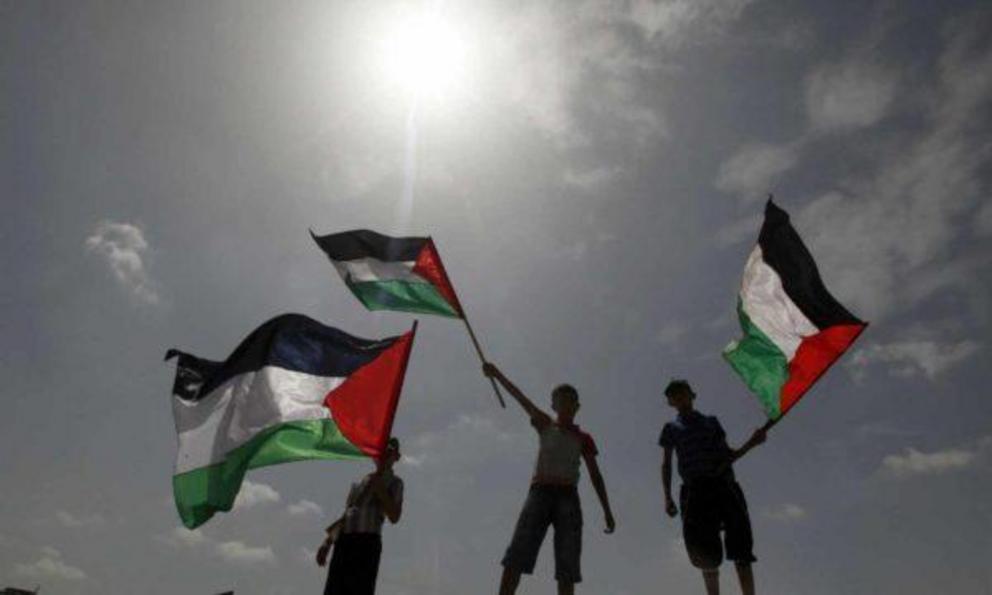Israeli law would ban public display of Palestinian flag
... within Israel
While the proposed law specifically bans the use of such flags during protests and demonstrations, it defines a protest as any gathering where three or more people are present, essentially making the display of such flags illegal in the vast majority of public areas.
TEL AVIV, ISRAEL — A new bill introduced in the Israeli Knesset on Wednesday seeks to prohibit the public use of the Palestinian flag within Israel and punish violators with up to a year in prison. The bill, authored by MK Anat Berko of the right-wing Likud Party, was presented in response to a protest that followed the passage of Israel’s extremely controversial “Nation State law,” which critics argue has codified apartheid in the country by enshrining the rights of Israeli Jews above all other Israeli citizens.
The protest in question, which took place two weeks ago in Tel Aviv’s Rabin Square and attracted over 30,000 participants, featured many Palestinian flags — a natural consequence of the fact that the demonstration was led by Palestinians holding Israeli citizenship, many of whom are descendants of Palestinians who remained on their land after the creation of the state of Israel in 1948, and who together comprise more than a sixth of Israel’s total population. The massive demonstration was largely criticized by proponents of the Nation State law, including Israeli Prime Minister Benjamin Netanyahu.
Berko stated that she expected Netanyahu’s government not only to support the measure but also to expedite its passage. Speaking in support of her bill to the Jerusalem Post, Berko referred to the Palestinian flag as an “enemy” flag that “should not be tolerated in the public sphere.”
In addition to the Palestinian flag, the law would also apply to the flag of the Palestine Liberation Organization (PLO) and to flags of countries that do not permit the public display of Israeli flags.
While the proposed law specifically bans the use of such flags during protests and demonstrations, it defines a protest as any gathering where three or more people are present, essentially making the display of such flags illegal in the vast majority of public areas.
Ultimately, the new law seems to be only the latest expression of the reality that Israel’s current political establishment has chosen the state’s “Jewish” identity over democracy. Going a step further than the Nation State law that calls the right to self-determination as something “unique to the Jewish people,” the proposed Flag law speaks to a concerted effort among the Israeli right to control and attack Palestinian identity within Israel and occupied Palestine.
An angry response from Arab-Israeli MKs
Though the bill will not be considered until the Knesset ends its summer recess in October, Arab-Israeli MKs wasted no time in denouncing the measure. For instance, MK Jamal Zahalka described the bill as “racist, cowardly, and an attempt to hide Palestinian identity that will not succeed,” further adding that the passage of the Nation State law had inspired a trend of racist legislation.
Zahalka’s condemnation of the bill was echoed by MK Aida Touma-Sliman, who told the Jerusalem Post that “those who think Arab citizens must prove their loyalty to Israel by denying their national identity are very wrong.” MK Neven Abu Rahmoun went a step further, accusing MK Berko of breaking the law for introducing the measure, given that incitement to racism is against Israeli law.
Berko dismissed the accusation, stating that in her view the real problem was that Arab-Israeli MKs do not have Israeli flags hanging in their offices and instead seek to identify with “hostile entities,” which Berko asserted included the Palestinian Authority (PA), which nominally governs the occupied West Bank.

